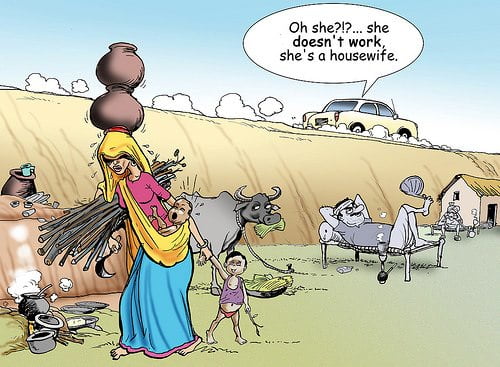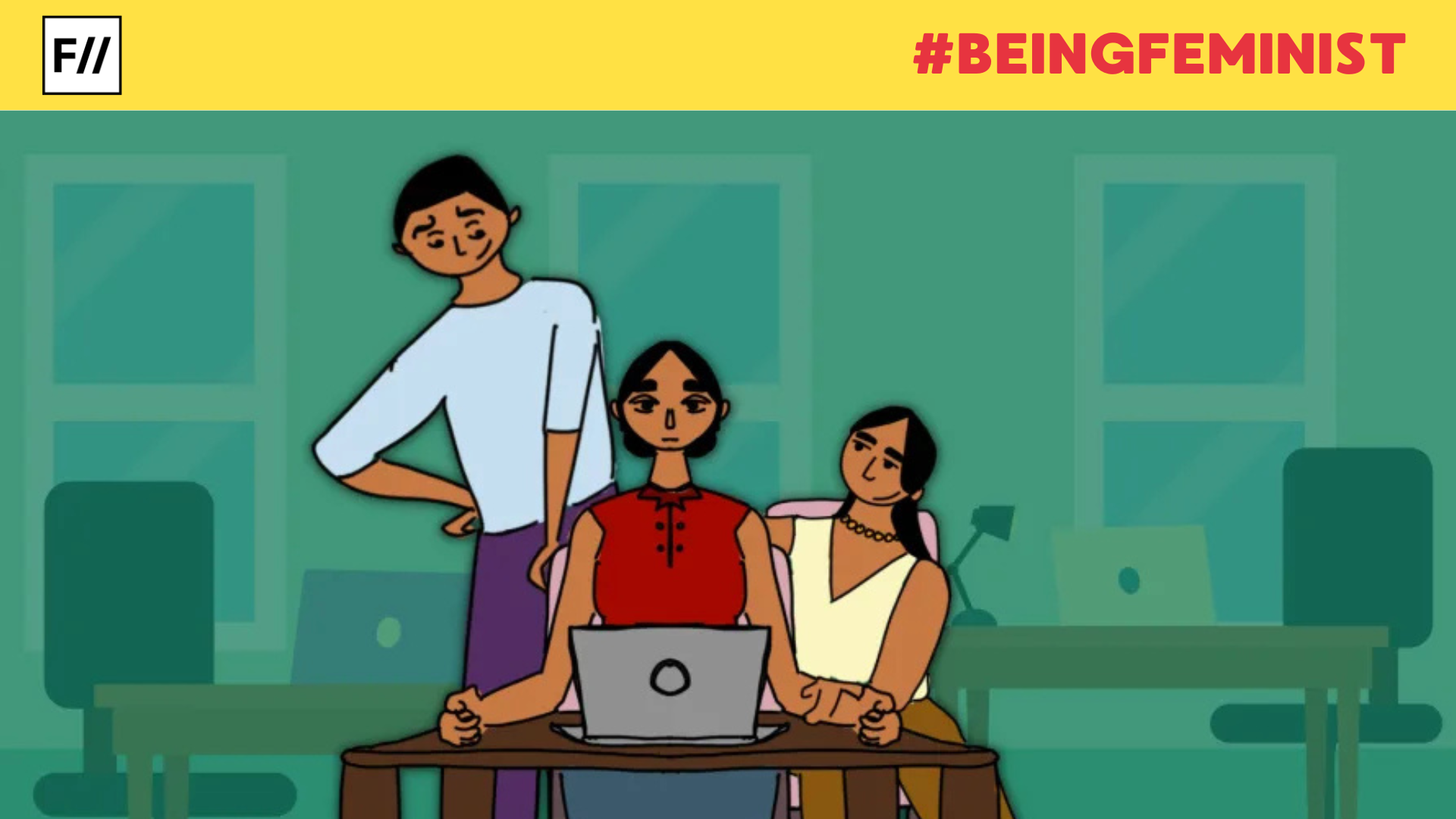How often have you heard the argument that women would be better off, and the cause of their empowerment greatly furthered, only if they worked? Even the most well-meaning women and often men (read privileged, and blinded by it) will say it with all the emphasis at their disposal. Implicit in the statement, is the assumption that women normally don’t ‘work’!
Going outside the home to work, and being compensated monetarily for that work, is quite a recent development in human history. The idea of work outside the home, monetised, is less than a hundred and fifty odd years old.
So much of our lives are determined by money – the having of it, the ability to spend it and save it. The consequence that if you don’t have enough of it, or don’t earn it at all, you are not worth much, is only to be expected.
Since the work such as cooking, cleaning, washing, care-giving, child rearing and care of the elderly and the infirm, generally considered women’s work is not valued monetarily, its fallout is the undervaluing of women’s lives. Proof, if it were needed, is in this piece in Huffingtonpost India saying that Indian women do ten times the unpaid work that men do.
One is likely to think, at this juncture, what’s to stop a woman from going out to work? Many women are doing just that. But when it comes to women it all gets massively complicated. Because uterus, eggs, new humans.
Having babies and furthering one’s family – and the human race, by extension – would logically seem to be in the interests of men, too; a father is, after all, as much a parent as a mother. Yet the structures of patriarchy have been so constructed that over centuries, childcare and nurturing has been relegated to women and now they are deemed to be specialists at the job. A job that keeps them at home, unpaid and undervalued.
If you read women’s magazines you may be familiar with that rare beast, the “work-life balance”. This struggle is restricted to a very small segment of the Indian population, women born into privilege, who were given an education and then could exercise the option to pursue a career. Yet many of these women had to opt out of flourishing and highly successful careers, specially when they had their children, as told in this recent story in Quartz. Like I said, uterus, eggs, new humans.
Needless to say, men need make no such attempt at balance because the life part is well taken care of for them and they are free to look into their careers with single-minded focus. If they do pitch in with care work, they earn extra brownie points for it. Women, however, even when earning an income outside the home, are saddled with child rearing and care giving. Men are encouraged and expected to seek partners with less earning capacity than themselves for this reason.
There are many websites for the ‘working’ women with pretences to feminism. Left unnamed, presumably, is the category of the millions of women who don’t. Of course, house work doesn’t count as work. When the media does centre women, it talks to them condescendingly.
Not unsurprisingly,when the talk does veer to getting women into paying jobs the purpose is to boost the economy. Here’s an example from CNBC.com that says why women should be allowed to do more paid work as it could be a huge boost to the economy. So even when there is an acknowledgement that a woman can’t just up and walk out of her home into a job, no thought seems to be given to look into the hurdles in the way. The economy is centred, not the woman.
In summing up
1. Large numbers of educated women stay home or give up jobs once they get married or especially once they have babies.
2. Women who were working outside the home, but cease to do so after marriage, do so either because their husbands or in-laws will not allow them as it’s beneath their dignity or because the jobs available aren’t well-paying enough.
3. Women stop working outside the home after childbirth due to lack of proper child care facilities.
Here are my suggestions
1. Give monetary support to mothers or other care givers. A fixed amount, per child or elder who needs full-time care. This will add value to the care giving work, while making the obtaining of the supplies needed for taking care of the child or elderly.
2. Encourage employers to provide child care facilities to their employees.
3. Paternity leave should be extended and made mandatory. Child rearing should be as much a man’s job as a woman’s if you really wanted to bring the child into the world.
4. We could tie this up with added incentives for parents having a girl child. This kind of gesture could also be of great symbolic value. Let’s not forget that we have an abysmal sex ratio at birth.
Post script: Only 933 girls are born for every 1000 boys in India as per the Government of India 2011 Census. The causes of that and its repercussions are a matter for another discussion, another day.
Featured Image Credit: This cartoon was developed by Neelabh Banerjee for UN Women India. The share of women’s unpaid work is 51% compared to only 33% of men’s unpaid work in India. We strive to make women’s work count in the economy
About the author(s)
A teacher by profession, a student of women's and gender studies, a life long learner and passionate feminist. Come, let me tell you why we should all be feminists!




